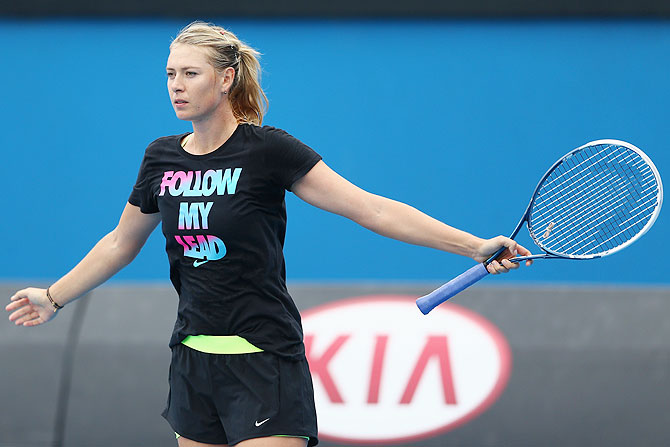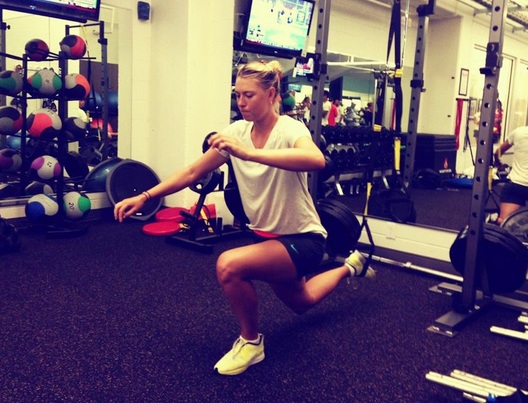Photographs: Cameron Spencer/Getty Images
Maria Sharapova happily admits that patience is not her strongest trait but the Russian will temper her expectations as she begins her Australian Open title campaign.
The 26-year-old missed the last few months of the 2013 season, including the U.S. Open, with an injury to her right shoulder, the same shoulder that required surgery in 2008.
She made an impressive return to the WTA Tour last week by reaching the semi-finals in Brisbane before losing to world number one Serena Williams.
After another lengthy absence, Sharapova knows better than to expect to hit top form immediately.
"You obviously have to lower your expectations a little bit and be a bit realistic about maybe the first few matches," she said at MelbournePark on Saturday.
"You have to grind, work through them, hope to get better as the tournament goes on."
The Australian Open champion in 2008, Sharapova begins her campaign this year against American Bethanie Mattek-Sands, an opponent who has given her trouble in the past.
Sharapova said she had spent so much time consulting doctors about her troublesome shoulder in recent years that she was contemplating a new career once she is done with tennis.
"I know about everything," she said, laughing. "I know a lot more than I ever thought that I would about a shoulder.
Not bogged down by the troublesome shoulder
Image: Maria SharapovaPhotographs: Maria Sharapova/Facebook
"But that's part of the game. Everyone has injuries. Everyone's body is different. They use their joints and muscles in very different ways because of the way they play. Everyone gets used up in different ways, I guess."
Dealing with the shoulder means Sharapova takes anti-inflammatories on occasion, but the four times Grand Slam champion said the injury was far less serious than the initial problem in 2008.
"It was not as hard (to cope with) as the one I had a few years back," she said.
"That was pretty tough, considering I had surgery.
"This is far from being that serious. This was a matter of time, which in tennis it's not great when you come to a doctor's office and they say, 'time, time, just wait, wait'.
"We don't have much patience because we always have a schedule set, tournaments to play.
"That's tough to accept because you don't quite know when the inflammation is going to go down, when you're going to be able to play overhead shots, things like that."
"I started getting back on the court, getting myself in tennis shape, playing matches, testing out the shoulder in that kind of environment.
"I'm happy to be back playing a Grand Slam. I missed the last one at the end of last year so I'm happy to get myself back in form and really start well here."




Comment
article